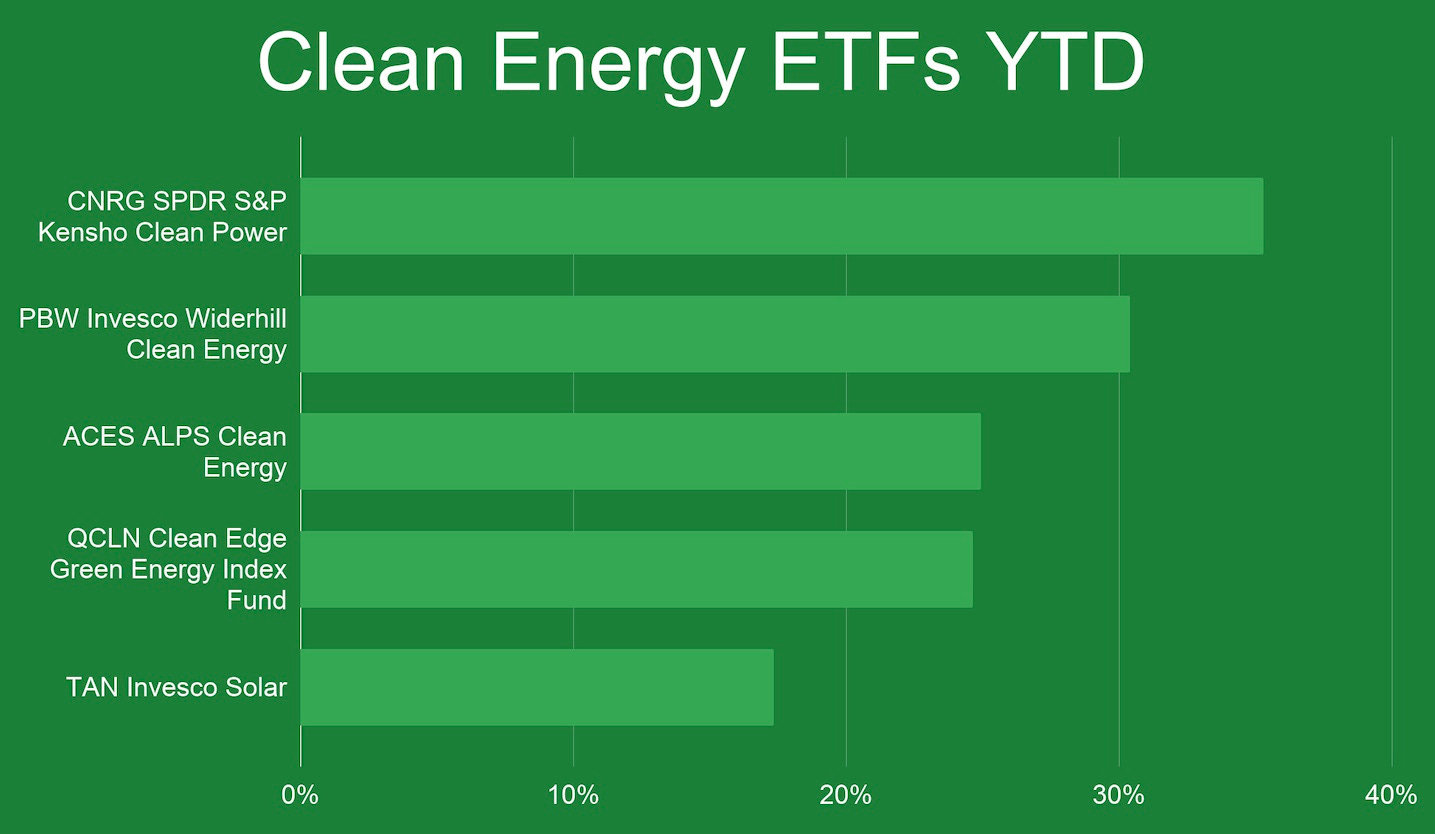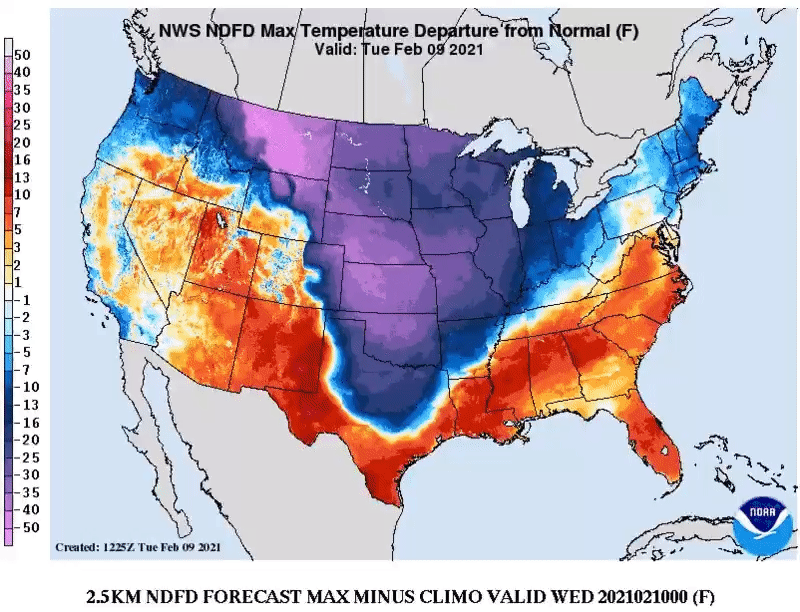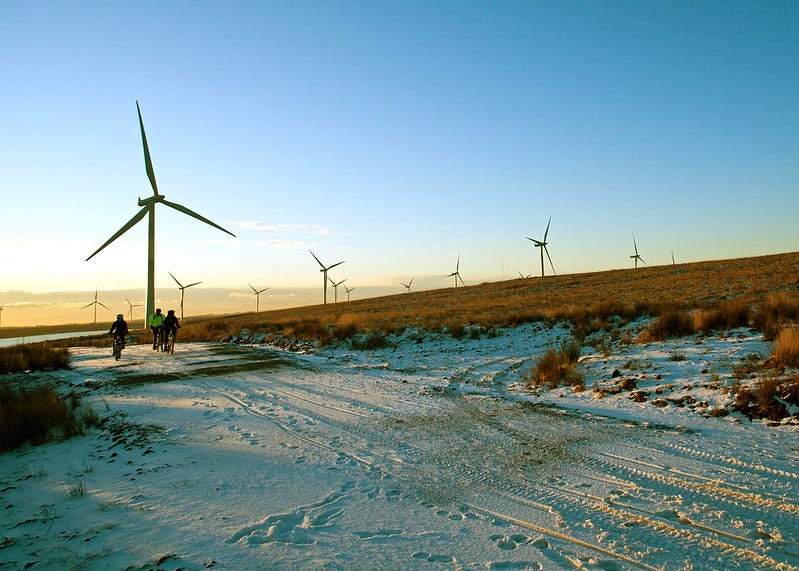Climate tech joins the space race; plus, where Asia's ESG plays reside
Welcome to Callaway Climate Insights, and especially to our new paying subscribers. Much of today's edition is exclusive for you.
Note: Callaway Climate Insights transitions to a paywall model today, with much of our content available for subscribers only. Please subscribe now to continue to receive the best of our journalism, and please share these free emails with your friends and colleagues. Group rates are available.
Tucked away near the end of a Bank of America research note this week about how clean energy, battery power and other climate solutions will become the new yardsticks for global supremacy was an insight I hadn’t seen before — the idea of climate science joining the space race.
With China leading the way on things like electric vehicles and batteries, Europe on renewable energy, and the U.S. catching up on climate finance and international diplomacy, the idea of clean energy as both a defensive and offensive weapon is intriguing, if only for the potential investment opportunities it presents.
BAC’s head of global thematic research, Haim Israel, estimated that $100 billion in research and development will be made in climate solutions this century, with the market value of companies focused on them hitting some $6 trillion, according to Bloomberg.
But the idea that climate solutions will lead to next-generation satellite and telecommunications technology in space, which in turn creates new opportunities for spying, as well as for private space pioneers such as Elon Musk and Jeff Bezos, adds to the theme that climate solutions are less about transition from fossil fuels than about the development of entirely new technologies for new uses.
Unfortunately, it also adds to the theme of geopolitical dominance and climate nationalism that makes the U.S.-China standoff all the more dangerous and threatens the potential for third-world countries most at risk. Our individual country responses to Covid are perhaps an early example of what is to come.
More insights below. . . .
Don’t forget to contact me directly if you have suggestions or ideas at dcallaway@callawayclimateinsights.com.
Save the date: Feb. 23 webinar with EU’s Frans Timmermans
Frans Timmermans, first vice president of the European Commission, gives the opening statement at the Climate Adaptation Summit 2021.
. . . . In a special event for Callaway Climate Insights readers, European Union Climate Commissioner Frans Timmermans will join us for a webinar on Tuesday, Feb. 23 to discuss Europe’s energy transition goals for 2030 and how it’s working with the incoming Biden Administration on the climate emergency. Powered by Ibec, which represents Irish business nationally and internationally, the event will also include Eamon Ryan, minister for the environment, climate and communications in Ireland.
Timmermans is one of the most influential climate leaders on the globe — a straight talker who will share his insights on transatlantic deals, how corporations can respond to the climate crisis, and public-private partnerships. The webinar will also feature a Q&A session for our paying subscribers to ask questions. . . .
Today’s insights: Big Oil's push into European wind energy, and Thailand's surprising sustainability
. . . . It was inevitable that when Big Oil decided to move into renewables in a real way, it would do so, well, big. The sale of wind leases off the coast of Britain this week is just an early example of what we can expect once companies sniff the profits now that the markets have begun to shift. One of them even went so far as to rebrand its famous name. Read more here. . . .
. . . . Of course, with oil prices touching $60 this week for the first time in more than a year, it could be a longer transition. But the push for renewables is proceeding apace, at least in the U.S., where a slew of new tax incentives were introduced in Congress. Read more here. . . .
. . . . S&P Global’s Sustainability Yearbook this week highlighted more 600 companies making progress in evolving EST metrics. You might be surprised where they come from, especially in Europe. Read more here. . . .
. . . . The surge in solar stocks and solar companies this year has investors looking for the big plays, and while the U.S. is strong in assembly, the components come from somewhere else. Read more here about the race in the polysilicon market to become the leader in solar. . . .
Data driven: Renewables ahead in the EU
. . . . For the first time, renewables generated a greater share of the EU-27’s electricity than fossil fuels, according to a 2020 power sector report from energy think tanks Ember and Agora Energiewende. Read more, including which renewables did the best, here.
News briefs: British Airways, BMW, coal-fired power plants and more

Editor’s picks:
BA’s investment in alternative jet fuel takes flight
Jawohl! BMW revs up for solar-smelted aluminum
Coal-fired power plants get a Covid cold shoulder






